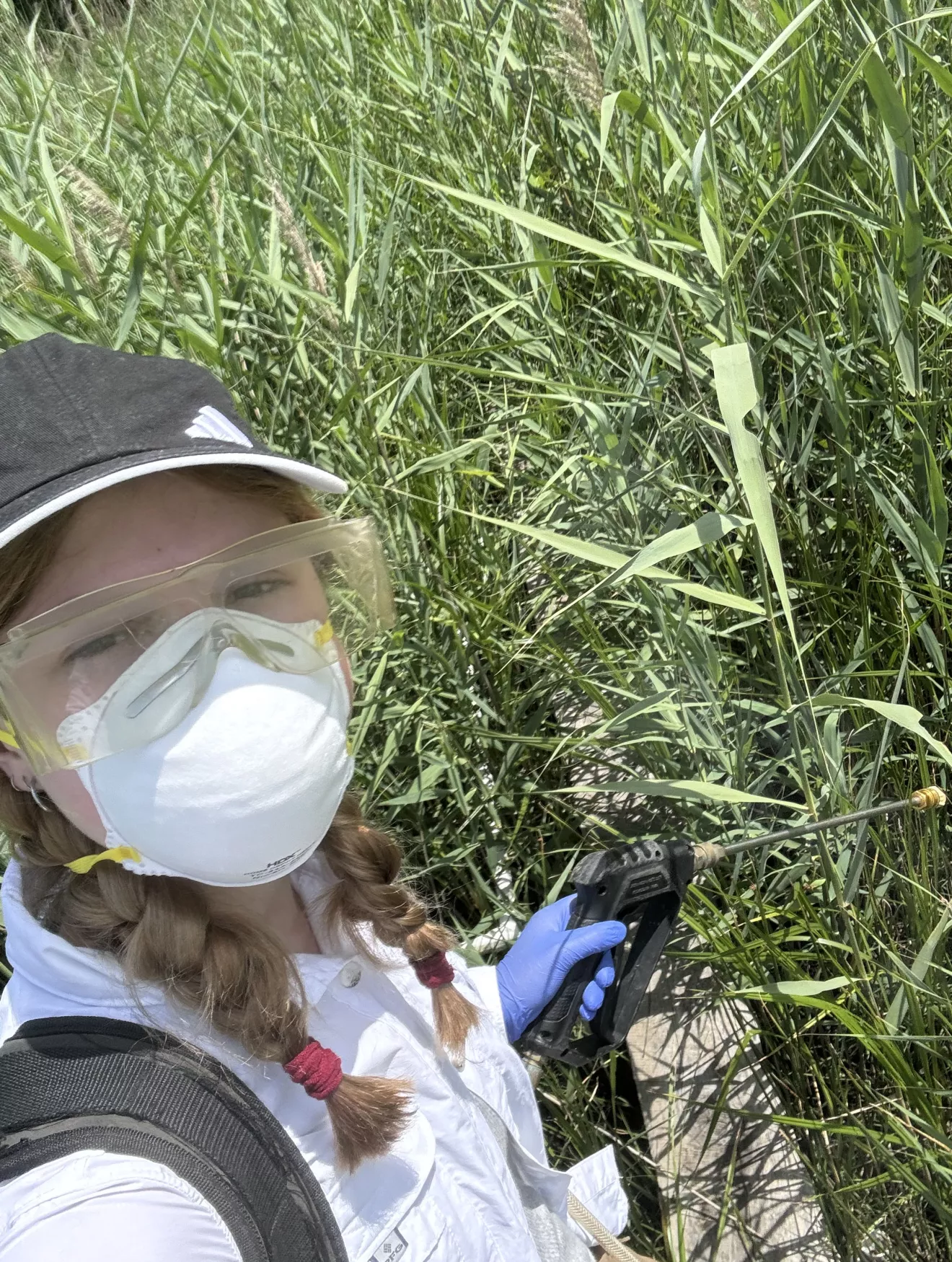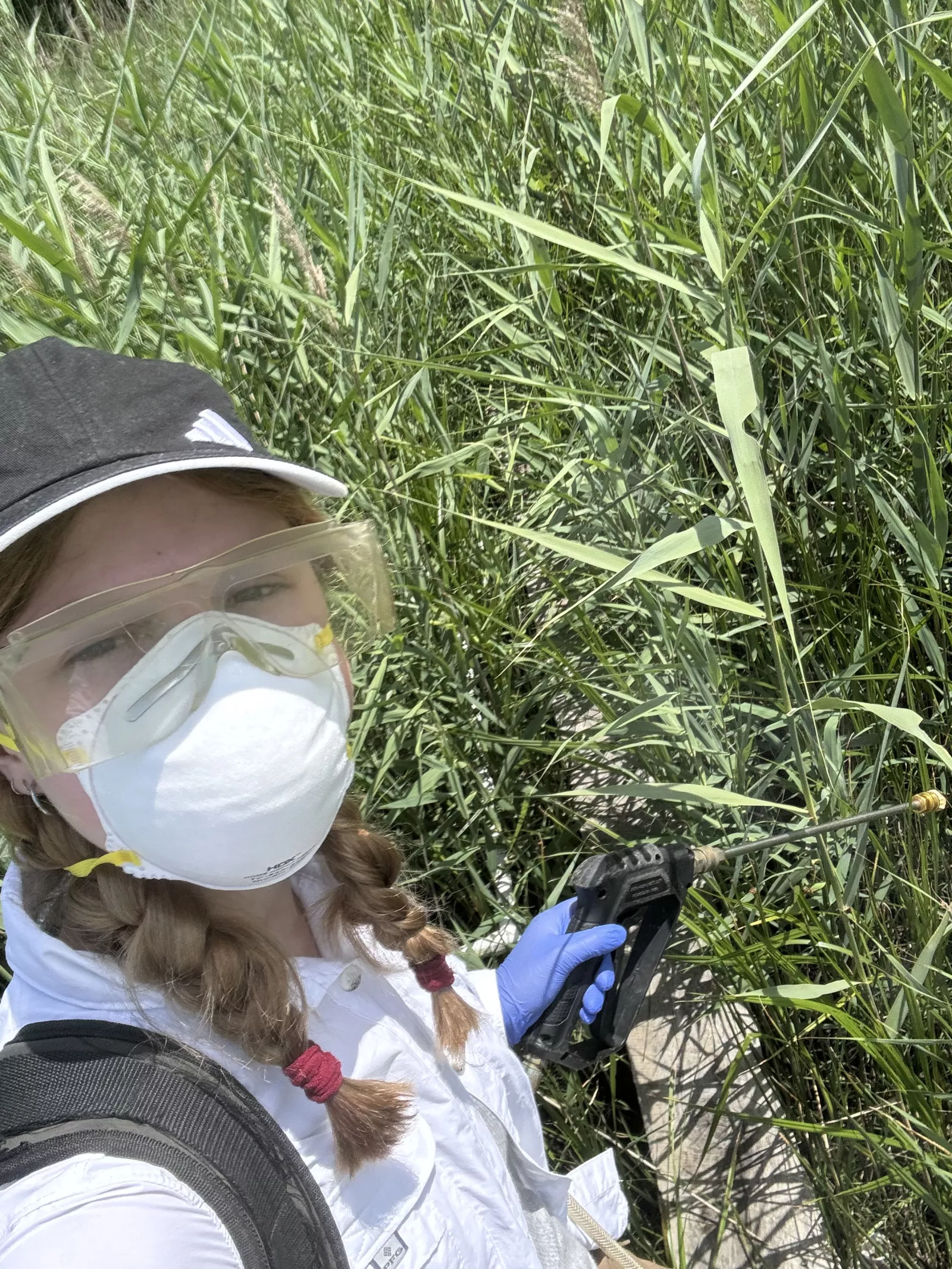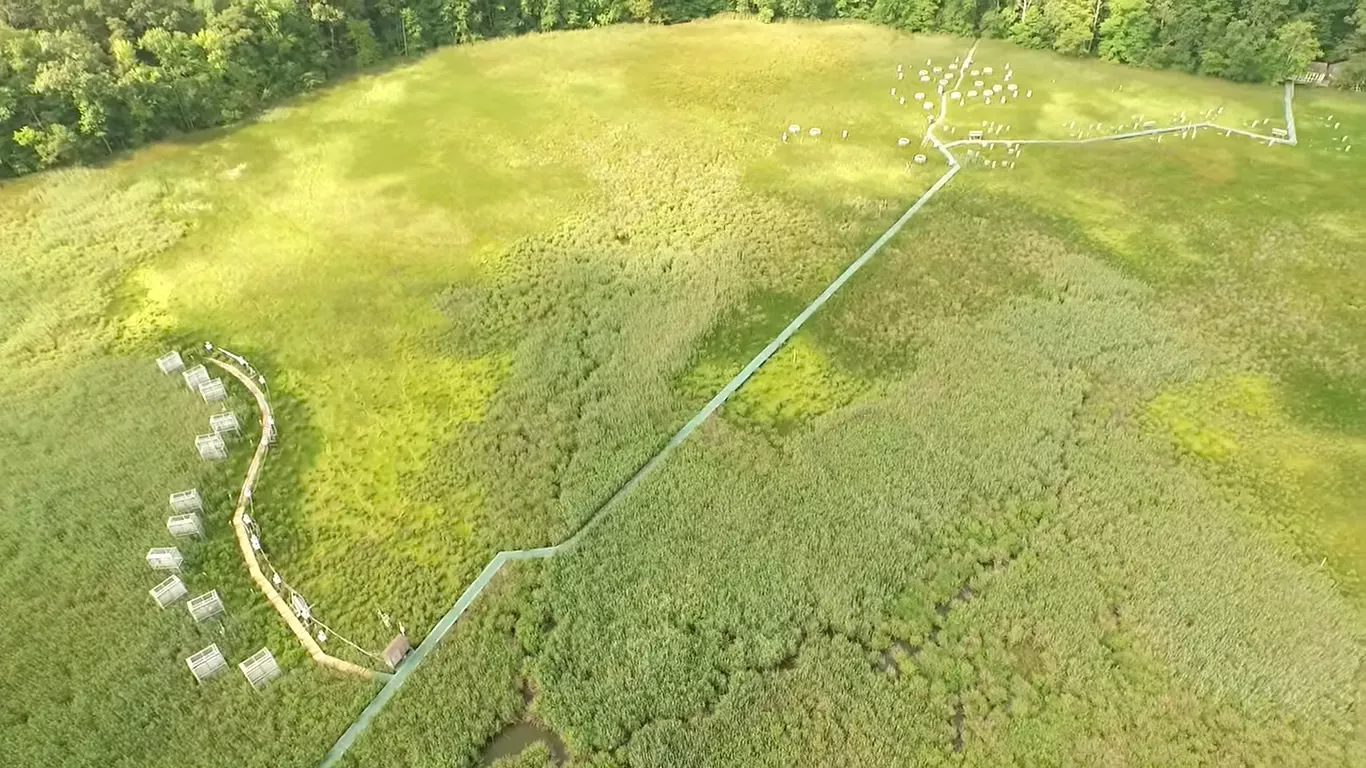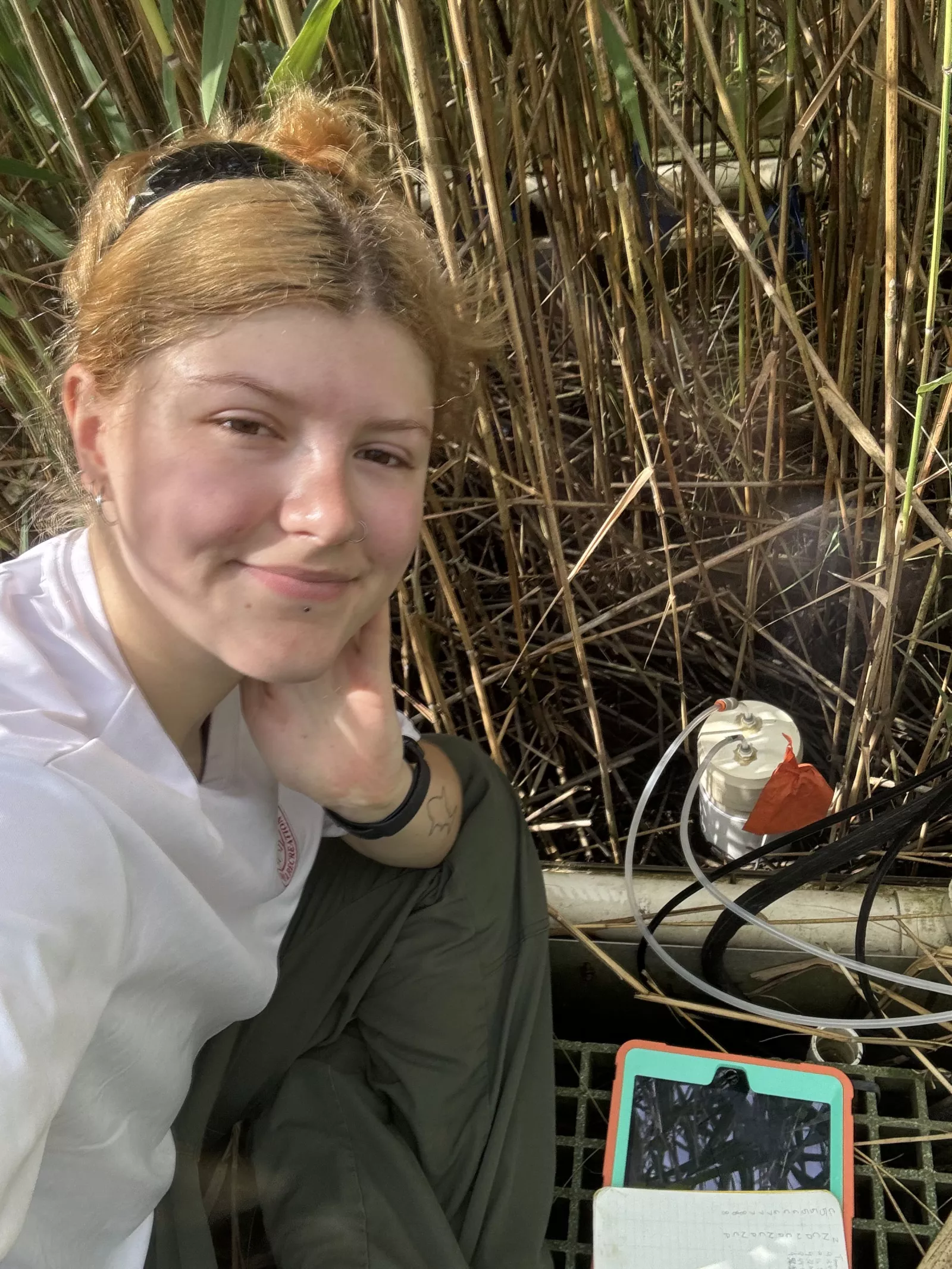
Name: Sophia Beckmann
Class Year: 2026
Major: Biology
Hometown: Somerville, MA
Internship Organization: Smithsonian Environmental Research Center
Internship Title: Molecular Biology Intern
Location: Edgewater, MD
What's happening at your internship? We would love to hear what kind of work you are doing!
My project explored how projected climate change conditions have impacted methane emissions of the invasive model species, Phragmites Australis. This is a part of a greater project called C-EVO, which explores how Phragmites responds to elevated CO2, and enriched Nitrogen, paying special attention to how these factors effect rapid evolution and natural selection of the genotypes. To measure methane emissions, I installed PVC collars into the ground in the 12 chambers of the experiment. Then I would use a portable gas analyzer equipped with a PVC chamber to measure the gases by placing the chamber on top of the PVC. Fluxes were measured weekly, and the order in which the fluxes were conducted rotated each time. Then an R programming packaged called “Flux Finder” was used to analyze the data and figure out the mols of methane produced per unit area of the marsh. The fluxes will be compared to each other to see if there is a significant effect that these projected environmental conditions influence these plants, and to what extent does the effect vary. When I’m not working on my own project, I am assisting my fellow interns and helping my technicians. Whether that is doing general lab tasks, assisting in field work, helping to fertilize plots, or helping a peer grind soil.
Why did you apply for this internship?
I originally learned of this opportunity through one of my biology professors, Dr. Thomas Mozdzer. The prior semester I had been learning about coastal ecosystems such as estuaries, mangrove forests, and wetlands. This knowledge spurred me to continue learning about these interesting systems this summer. I also was really excited to get involved with current research, and after coming off of a semester doing a 360, I wanted to continue on the path of an independent project. I wanted to push myself and gain more skills in this opportunity as I would be working alongside many ecological specialists, and fellow interns.
What has been the biggest challenge you have faced at your internship?
Overall, I have greatly enjoyed my time here, however, there have been challenges I’ve had to navigate around along the way. I was extremely excited to begin the process of working on my own project, but I had some hiccups concerning the technology. I often ran into problems while collecting my data, and often times I collected my data alone working long days out in the hot summer sun. So, I had to think quickly to keep myself and the equipment cool. Sometimes the issues would lay with the battery of my machine, or the machine itself may not be working. I did have some people located at my field site that could help, it didn’t always make sense to bring all my equipment in from the field to try and receive outside help. So, I instead learned to adapt to these challenges, and push through. Whether that may be switching from battery to outlet or giving the machine breaks. Another challenge I faced was the summer heat. When you do fieldwork, it is very important that you are very aware of the weather and your own body. It can be easy to forget to drink water or want to prioritize one last flux, but I’ve learned that you need to listen to your equipment and body and get out of there when you’re tired and take lots of breaks. The work will get done eventually, and you have to work with nature as much as you can.
What is most rewarding about your internship?
I have learned a ton by being here, but at the end of the day that wouldn’t have been possible without making the connections I did. I have met so many different types of scientists, who have shared their experiences and knowledge with us interns to help guide us or give us feedback. I’ve had the opportunity to do a lab exchange and learn about the other projects that go on in SERC. That’s not even including the people I interacted with most often, my fellow interns. This experience brings together a bunch of people from all across the country, who all share a common interest in the environment. I have learned so much from them, whether that’s by an everyday chat about what everyone did, or an informal tour of their data collection site.


